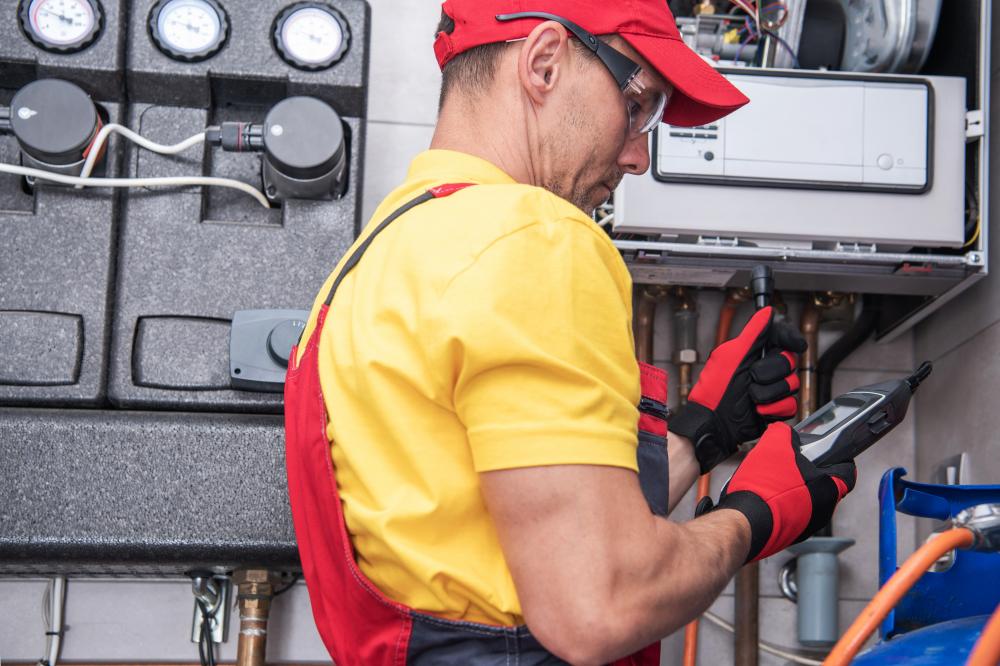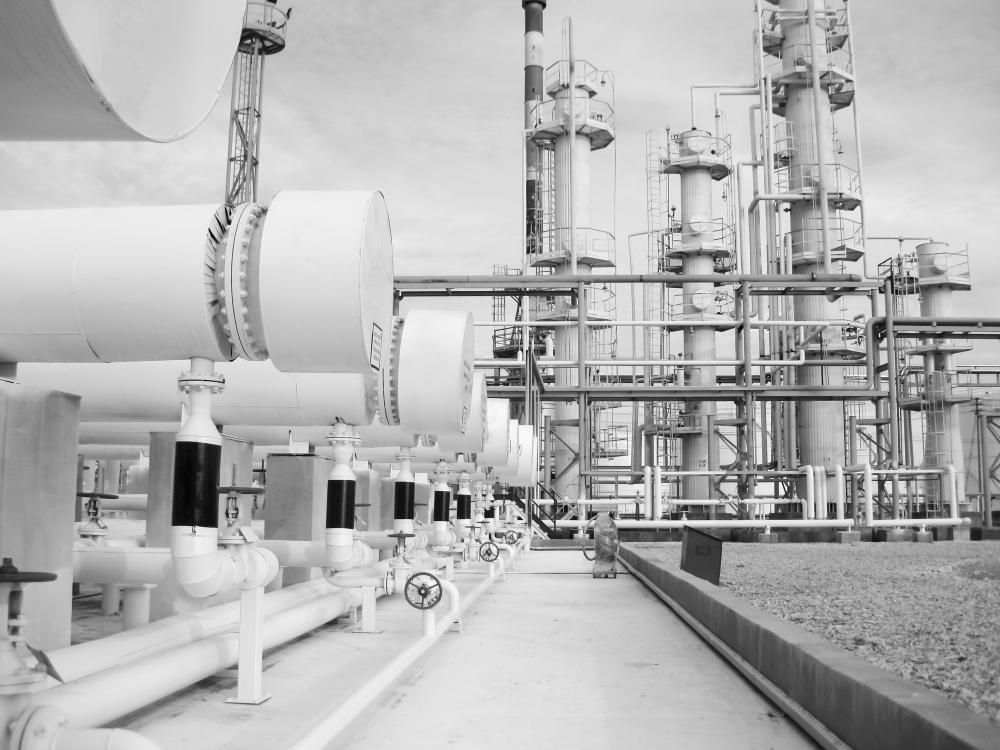
Understanding Instrumentation and Controls Services
At Paul Industries, we see instrumentation and controls services as the backbone of process efficiency and reliability in the industries we serve, including pharmaceutical, biotechnology, and food and beverage sectors. Instrumentation ensures precise measurement and monitoring of various process parameters, while controls ensure that these processes operate within the required parameters for optimal performance. This is crucial for maintaining the quality, safety, and efficiency of operations.
Key Components
Instrumentation
At the heart of Paul Industries, instrumentation is fundamental to our approach. Instruments such as sensors, gauges, and transmitters are essential for acquiring data from the process environment. This data might include temperature, pressure, level, flow, and other critical process variables. Accurate measurement is crucial for process control and, ultimately, product quality.
Control Systems
Control systems take the data provided by instrumentation and use it to maintain process variables within set parameters. They can be as simple as a single-loop controller or as complex as a distributed control system (DCS) that automates the entire process. Our expertise in designing and implementing these systems ensures that processes are efficient, reliable, and adaptable to changing demands.
The Importance of Integration
In an era where technology evolves rapidly, integrating instrumentation and control systems with the broader IT infrastructure is paramount. It allows for real-time data analysis, remote monitoring, and predictive maintenance, all of which enhance the decision-making process and operational efficiency. Our team at Paul Industries specializes in creating these integrated solutions, ensuring seamless operation across all levels of your organization.
Custom Solutions for Diverse Industries
Each industry we serve has unique challenges and requirements. This diversity demands bespoke solutions tailored to each client’s specific needs. Whether it’s designing a high-purity water system for a pharmaceutical client or creating a robust process control system for a food and beverage facility, our approach is always customized. Our broad experience across various sectors enables us to design solutions that meet the most stringent industry standards, including cGMP and FDA regulations.
Benefits of Choosing Paul Industries
Choosing Paul Industries for your instrumentation and controls services brings numerous advantages. Our commitment to quality and excellence ensures that your systems are not only compliant with industry standards but also optimized for maximum efficiency and reliability. The integration of state-of-the-art technology into our solutions provides you with the capability to monitor and improve your processes continuously.
Our partnerships with leading manufacturers and suppliers mean that you have access to the highest quality equipment and components. Coupled with our comprehensive range of services, from consulting and design to project management and maintenance, we provide a total solution that addresses all your process equipment needs.
Our Experience
With over thirty years in the business, Paul Industries has accumulated a wealth of knowledge and experience. Our success stories range from small-scale installations to major industrial projects, each with its own set of challenges and solutions. This experience not only reinforces our capability but also enriches our understanding of the intricate needs of our clients. Real-world challenges have honed our problem-solving skills, ensuring that we can tackle any issue with confidence and expertise.
Partnering for Success
Our philosophy at Paul Industries centers on building strong partnerships. We believe in working closely with our clients to understand their needs and challenges fully. This collaborative approach allows us to design solutions that are truly aligned with our clients’ goals. Our engagement does not end with the execution of a project; we offer ongoing support and maintenance services to ensure the longevity and efficiency of your systems.
Looking Toward the Future
The future of instrumentation and controls services is exciting. Advances in technology, such as the Internet of Things (IoT), artificial intelligence (AI), and machine learning, are poised to transform how we design and manage process control systems. At Paul Industries, we are committed to staying at the forefront of these developments, ensuring that our solutions leverage the latest technologies to deliver enhanced performance, efficiency, and value to our clients.
Our vision involves not just adapting to technological advances but actively participating in shaping the future of our industry. By continuing to innovate and expand our services, we aim to meet the evolving needs of our clients, today and tomorrow.
Contact Us
For inquiries or to discuss your commercial project needs, reach out to us at gil@paulindustriesllc.org or call 201-450-8280. Discover how Paul Industries can bring excellence and reliability to your operations, ensuring that your projects are delivered right, on time, and on budget.

What is Instrumentation and Control Services?
At Paul Industries, when we talk about instrumentation and control services, we’re referring to the backbone of process efficiency in various industries. Imagine you’re baking a cake, and you have an oven that tells you the precise temperature, a scale that ensures exact ingredient measurements, and a timer that alerts you the moment your cake is perfectly baked. In the industrial world, our services do something similar but on a much larger scale. We provide and manage the tools–like sensors, gauges, and control systems–that ensure processes like pharmaceutical manufacturing or food and beverage production are precise, efficient, and safe. It’s about having the right information at the right time to make informed decisions and keep everything running smoothly.
What is the Function of Instrumentation and Control?
The primary function of instrumentation and control is to ensure operational processes run within their required parameters. Think of it as the nervous system of a process operation. Instrumentation acts as the senses, collecting data on various process variables, while control is the brain’s response, adjusting the processes to maintain the desired output. By accurately measuring and controlling variables like temperature, pressure, and flow, we ensure that production is not only efficient but also meets the high-quality standards required by the industries we serve.
What is an Example of Instrumentation and Control?
Let’s consider a practical example: a pharmaceutical company producing vaccines. In this case, temperature control is critical. The instrumentation part involves thermocouples and RTDs (Resistance Temperature Detectors) to accurately measure temperatures throughout the process. The control part then involves a Distributed Control System (DCS) that takes this temperature data and adjusts cooling or heating elements automatically to keep the temperature within the strict, predetermined range. This ensures the vaccine’s integrity, safety, and efficacy throughout its production, showcasing the seamless orchestration of instrumentation and control systems.
What Does an Instrumentation Engineer Do?
An instrumentation engineer at Paul Industries is much like a conductor of an orchestra, ensuring every instrument (in our case, process equipment) plays in harmony. They design, install, and maintain all the sensors and controls that gather critical process information. It’s a role that demands a keen eye for detail and a deep understanding of both the technology and the specific needs of the process being controlled. These engineers are problem solvers, constantly tweaking the system for optimal performance and adapting to new technologies and methodologies to keep processes at the cutting edge of efficiency and safety.
How Does Technology Impact Instrumentation and Controls?
Technology has had a profound impact on the field of instrumentation and controls, revolutionizing how we monitor, control, and optimize industrial processes. With advancements in IoT (Internet of Things), AI (Artificial Intelligence), and machine learning, we’re able to collect and analyze data in real-time, predict equipment failures before they happen, and automate complex processes with unprecedented precision. At Paul Industries, embracing these cutting-edge technologies enables us to offer solutions that not only meet the current demands of our clients but also anticipate future challenges, ensuring they stay competitive and productive.
How Do We Ensure the Reliability of Control Systems?
In ensuring the reliability of control systems, we at Paul Industries emphasize the importance of regular maintenance, comprehensive system testing, and continuous improvement. Reliability starts with the design–selecting the right components, redundant systems for critical processes, and ensuring systems are user-friendly and accessible. Regular audits and preventative maintenance are key, alongside leveraging diagnostics and analytics to predict and prevent failures. Moreover, we believe in continuous training for our team, keeping them updated with the latest technologies and best practices. This holistic approach ensures that our control systems are not only reliable but also resilient in the face of evolving industry demands.
Have more questions or interested in discussing how we can optimize your process operations with our instrumentation and control services? Feel free to reach out to us. We’re eager to partner with you and drive your operations towards unparalleled efficiency and reliability.
Resources
- Instrumentation and Controls Overview – EPA – Analytical Techniques for Water
- Process Control Systems – NIST – Control Systems
- Integrated Solutions – NREL – Predictive Analytics
- Industry Standards – FDA – Food Industry Regulations
- Equipment Suppliers – NSF – National Science Foundation